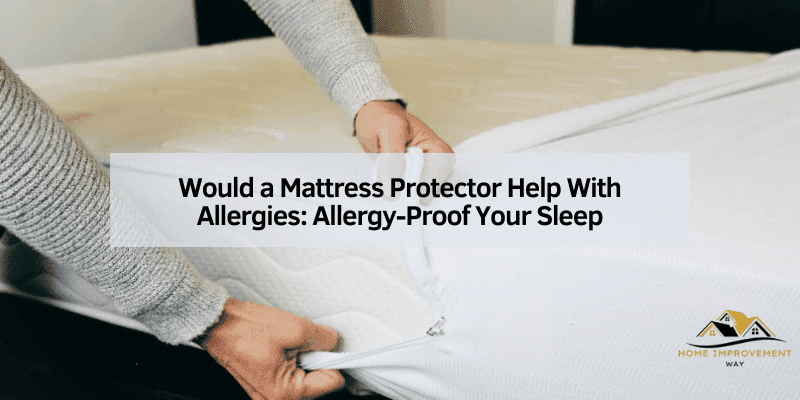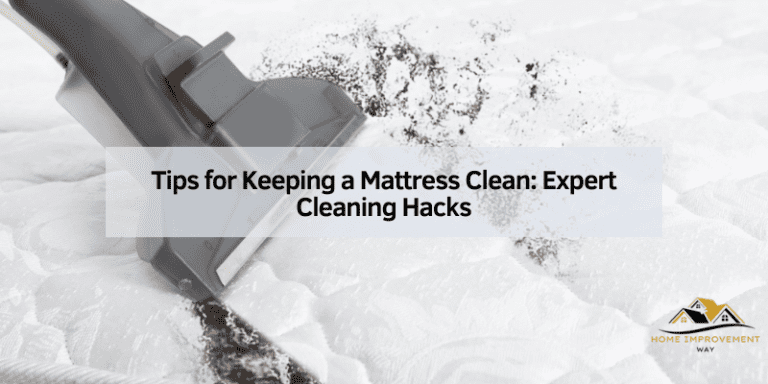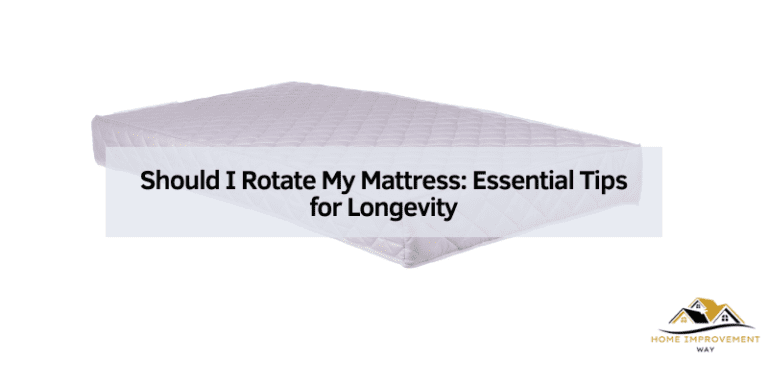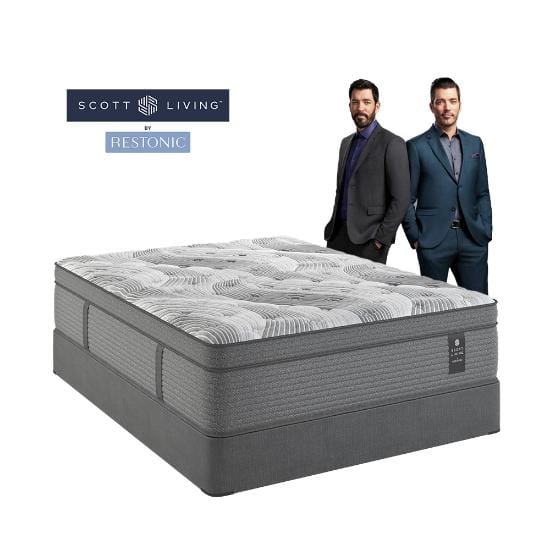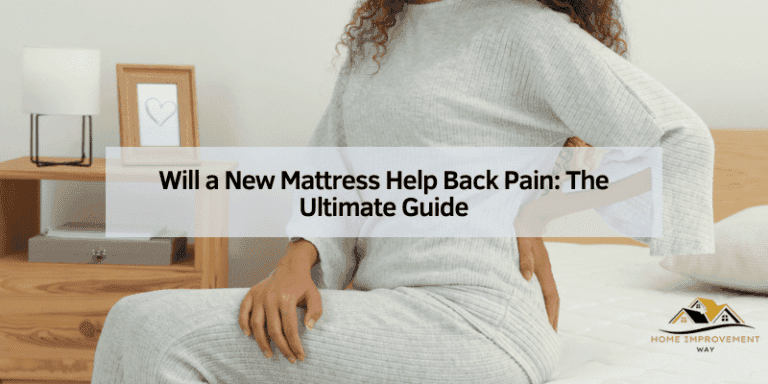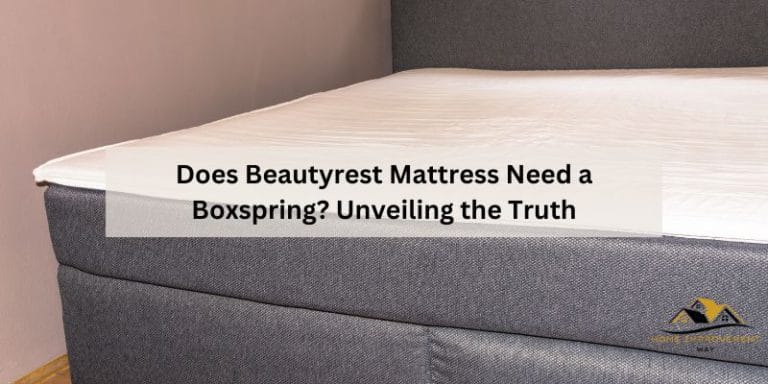Would a Mattress Protector Help With Allergies: Allergy-Proof Your Sleep
Yes, a mattress protector can help with allergies by creating a barrier against dust mites and other allergens. People with allergies can benefit from using a mattress protector to reduce exposure to allergens while sleeping.
Dust mites and other allergens can accumulate in mattresses, triggering allergic reactions for some individuals. By using a mattress protector, you can create a barrier that prevents these allergens from reaching the sleeper, leading to a reduction in allergy symptoms.
This can be particularly beneficial for those who suffer from asthma, eczema, or other respiratory conditions. Additionally, mattress protectors can also help in preventing mold and mildew growth, providing a cleaner and healthier sleep environment. In the following sections, we will explore how mattress protectors specifically aid in reducing allergens and offer tips for choosing the right one for your needs.
The Link Between Allergies And Sleep Quality
Many people underestimate the impact that allergies can have on their overall sleep quality. Allergies, whether triggered by dust, pet dander, or other common irritants, can significantly disrupt one’s ability to get a restful night’s sleep. In this blog post, we’ll delve into the effects of allergies on sleep and explore whether a mattress protector can help alleviate these issues.
Impact Of Allergies On Sleep
Allergies can greatly disturb an individual’s sleep patterns, leading to symptoms such as nasal congestion, coughing, sneezing, and itchy eyes. These discomforts can make it challenging to fall asleep and stay asleep throughout the night, ultimately resulting in poor sleep quality and reduced overall well-being.
Common Allergens In The Bedroom
- Dust mites
- Pet dander
- Mold spores
- Pollen
It’s important to understand that these allergens are commonly found in the bedroom, particularly in mattresses and bedding, making them a significant contributor to sleep-related allergies.
Investing in a quality mattress protector that is designed to provide a barrier against common allergens can potentially mitigate the impact of these irritants and contribute to improved sleep hygiene.
How A Mattress Protector Helps Allergies
Barrier Against Allergens
One of the key ways a mattress protector helps with allergies is by creating a physical barrier against common allergens such as dust mites, pet dander, and mold. These microscopic particles can often accumulate in the fabric of a mattress, leading to allergic reactions and breathing difficulties. By using a mattress protector, you can effectively block these allergens from permeating into the mattress, thereby reducing the risk of allergic reactions and improving overall sleep quality for individuals prone to allergies.
Easy Maintenance And Cleaning
Another benefit of using a mattress protector to alleviate allergies is the ease of maintenance and cleaning it provides. A high-quality mattress protector is designed to be waterproof and resistant to stains, which not only protects the mattress from spills and accidents but also prevents the accumulation of allergens. Additionally, most mattress protectors are machine washable, making it convenient to regularly clean and remove any allergens that may have accumulated on the surface, thus contributing to a cleaner sleeping environment for individuals with allergies.
Factors To Consider
Allergies can disrupt your sleep and affect your overall well-being, making it essential to create a sleep environment that minimizes potential allergens. One way to achieve this is by using a mattress protector. However, when considering a mattress protector for allergies, there are several factors that need to be taken into account to ensure optimal protection and comfort.
Material And Breathability
When selecting a mattress protector to alleviate allergies, the material and breathability are crucial factors to consider. Opt for protectors made from hypoallergenic materials such as tightly woven fabrics or microfiber that prevent the accumulation of dust mites, pet dander, and other allergens. Additionally, ensure the protector allows for adequate airflow to prevent moisture buildup, which can create a breeding ground for mold and mildew.
Waterproof Vs. Non-waterproof Options
Choosing between a waterproof and non-waterproof mattress protector largely depends on personal preference and specific allergy concerns. A waterproof mattress protector provides an extra layer of defense against spills, stains, and liquid allergens, such as sweat and body fluids. However, some waterproof options may compromise breathability, potentially leading to heat retention and discomfort. On the other hand, non-waterproof protectors offer breathability and a more natural feel, making them suitable for individuals with mild allergies who prioritize comfort over liquid protection.
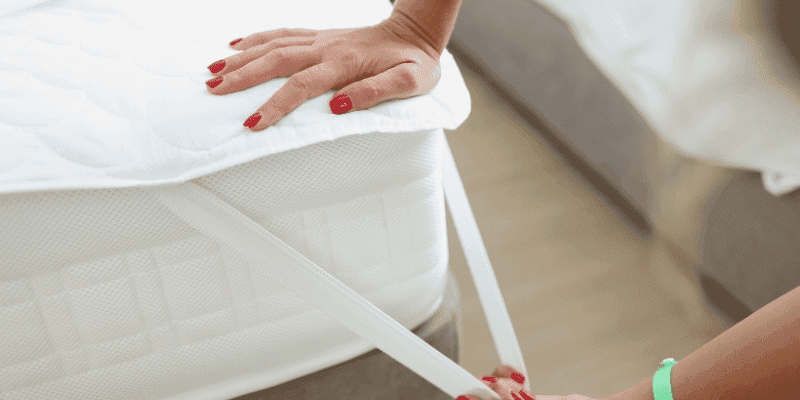
Additional Allergy-proofing Tips
Regular Cleaning And Maintenance
Regular cleaning and maintenance play a crucial role in minimizing allergens in your sleep environment. Creating a routine for cleaning your bedding, mattress, and bedroom can significantly reduce allergen exposure.
Investing In Hypoallergenic Bedding
Investing in hypoallergenic bedding can provide an added layer of defense against allergens. Hypoallergenic materials are designed to repel common allergens such as dust mites, mold, and pet dander, creating a more allergy-friendly sleep environment.
In addition to using a mattress protector to help with allergies, implementing additional allergy-proofing tips can further enhance the cleanliness and allergen-reducing measures in your sleep environment. Alongside regular cleaning and maintenance, investing in hypoallergenic bedding can offer comprehensive protection against allergens. These proactive steps can significantly improve the overall comfort and well-being of individuals prone to allergies. By incorporating these additional strategies, you can create a healthier and more conducive sleep environment.
Frequently Asked Questions On Would A Mattress Protector Help With Allergies
How Does A Mattress Protector Help With Allergies?
A mattress protector acts as a barrier, preventing dust mites, pet dander, and other allergens from settling into your mattress. By reducing exposure to these allergens, it can help alleviate allergy symptoms and improve overall sleep quality.
What Features Should I Look For In A Mattress Protector For Allergies?
When choosing a mattress protector for allergies, look for a hypoallergenic material that is breathable, waterproof, and easy to clean. Ensure it provides a secure fit to fully encase the mattress and effectively block out allergens.
Can A Mattress Protector Reduce Dust Mite Allergies?
Yes, a quality mattress protector can significantly reduce dust mite allergies by creating a protective barrier between you and the allergens. By minimizing exposure to dust mites and their waste, it can help alleviate symptoms such as sneezing, itching, and congestion.
Will A Mattress Protector Also Protect Against Bed Bugs?
In addition to guarding against allergens, a mattress protector can also help prevent bed bugs from infesting your mattress. Its snug fit and impenetrable material make it difficult for bed bugs to access and inhabit your mattress, providing added protection.
Conclusion
To sum it up, investing in a quality mattress protector can effectively reduce allergy symptoms. By creating a barrier against dust mites and other allergens, mattress protectors help to alleviate allergies and improve overall sleep health. By maintaining a clean and allergen-free sleep environment, you can enjoy a restful and refreshing night’s sleep.

